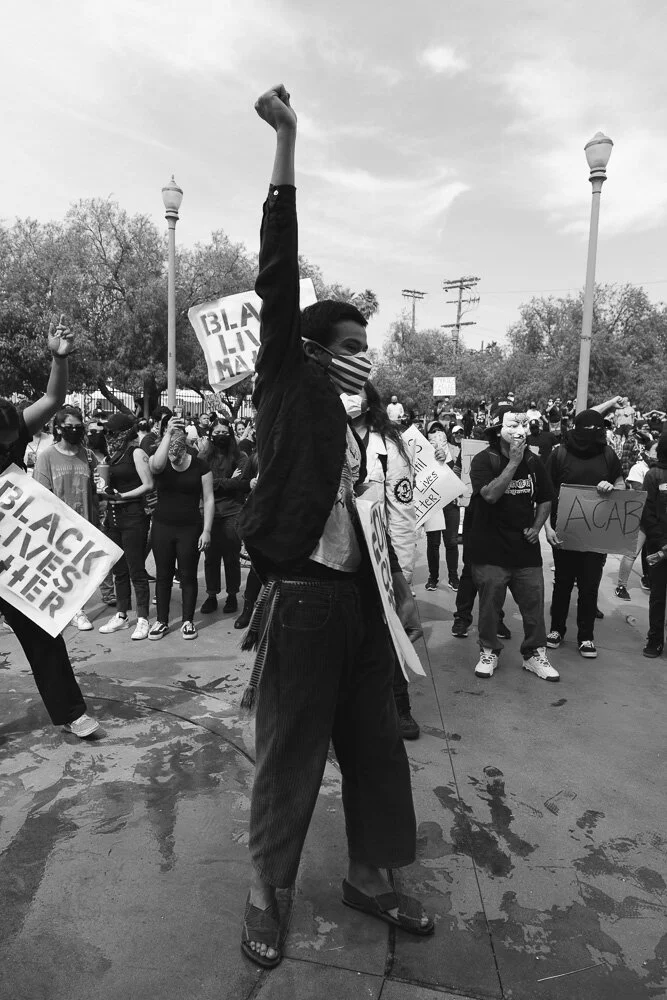From the Issue: Matt Tyrnauer
Courtesy Sony Pictures Classics.
Read the full interview in Musée Magazine Issue 23: Choices, available here.
Interview by Kala Herh
KALA HERH: I’m sure you’ve been asked this question a lot, but can you tell me why you chose Roy Cohn as your subject for this movie?
MATT TYRNAUER: Roy Cohn created a president from beyond the grave, which as far as I can tell, is an unprecedented achievement in the annals of American history. That's the principal reason. However, this project goes back to 2016. I was making a previous film of mine, Studio 54 that year and watching a lot of archival footage of Roy Cohn because he was the lawyer for Studio 54. He was an explosive character on screen, and I knew that he was Donald Trump's mentor. So with the political campaign starting that year, I kept thinking to myself, Roy Cohn is an incredible character for a documentary, one that's never been done before. But, the only reason to make such a film is if Donald Trump wins and it's impossible for Donald Trump to win. So as soon as I thought of it, I banished it from my mind because I just didn't think that it would be the film to make in 2017. When Trump won the Electoral College, I began working on the film the next day because I think that if you want to understand Trump, you have to look at Roy Cohn.
KALA: You talked a little bit about Studio 54 and his appearance in that. What during this process resonated with you about Cohn?
MATT: Well, you know, I make a couple of types of documentary. One is cinéma vérité, where the characters are around, and I follow them with cameras. That type of movie has a particular feel and structure to it. When the main character is no longer with us, you have to depend mostly on archival footage. There was no one who lived more of a televised life, who wasn't an actual TV personality, than Roy Cohn. He began his career in the infancy of television during the early McCarthy period until his death in 1986. It became evident to me in watching all of the footage we were getting in the Studio 54 films, that he was a public character and he was a consummate performer. That was part of his very calculated persona. He understood that people wanted to be entertained, and he entertained them on the news or in the newspapers for his entire life. And there is, of course, an oblique connection to Trump, who's also an entertainer. These two guys are no laughing matter. Cohn was a dangerous, manipulative, malign demagogue and Trump is the most powerful man in the world and the most dangerous man in the world.
Courtesy Sony Pictures Classics.
KALA: During your process of filming, I imagine that you developed an intimate relationship with Roy Cohn.
Did your opinion, during this whole process of filming and archival, change when you finished the film?
MATT: That's a great question always because generally when you start to do any big project, you learn a tremendous amount and your opinions and your perceptions shift because you take on a huge amount of information. Making a movie or writing a book is in some ways like doing a Ph.D. thesis, sometimes more.
KALA: [laughs] I never thought about it that way before.
MATT: It's an enormously detailed and elaborate process. The joy of it is the real love of learning and exploring all of this incredible material and then coming to conclusions. I never thought that my opinion of Cohn would change in the sense that I would find him to be a good person at the end of this. And indeed, I did not. I think that, if anything, he is much worse than I thought he was. And again, that's why I made the movie, because I suspected he might be. He's also someone who was famously empathy-free. It's very hard to have compassion for someone who is a lying narcissist. And I do think that he was even more of a hypocrite than I knew. So I think my perception of him changed and became even darker. However, I wouldn't say the movie is the heaviest going film made this year because I discovered that he was so quirky and strange and bizarre, in the way that a supervillain has dark, sulfurous aspects of their character. But, their bizarre behavior creates a level of intrigue. People have made an interesting point that Where's My Roy Cohn? and the Joker are sometimes playing side by side in movie theaters. I would say that Zeitgeist often shows us things that we're not perceiving. Like when Hollywood started cranking out film noir pictures in the years after the war, a time that was really a sunny time in America. People were building white picket fences and digging swimming pools. But at the same time, the Holocaust was in the recent past and the nuclear bomb was now a reality. So the content of Hollywood films in large part became very dark and sinister. I think we're in another time like that right now where even if the stock market is hitting new highs and unemployment's at an all-time low, there's a tremendous amount of angst. We're living in very uncertain and very dark times that are potentially cataclysmic. Art is starting to reflect that. Arch-villains are probably the order of the day in the cinema. So there probably is a reason the Joker and Where's My Roy Cohn? are side by side.
Courtesy Sony Pictures Classics.










